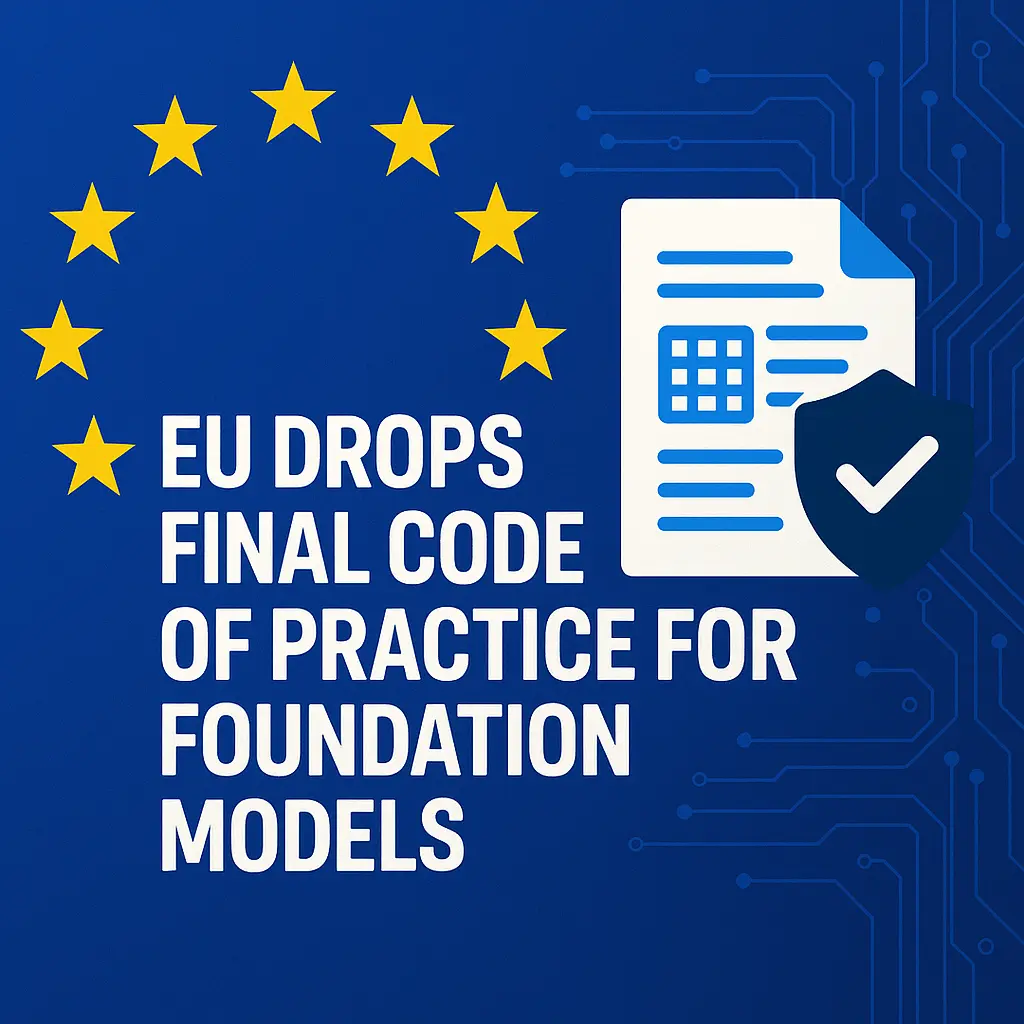The European Commission’s new voluntary playbook for general-purpose AI kicks off a 12-month countdown to hard-law enforcement. We break down the must-know clauses, industry push-back, and global ripple effects.
Published: 11 July 2025 · 7-min read · by AI Trend Scout
TL;DR Brussels just released the final General-Purpose AI Code of Practice. It is “voluntary” for now but becomes legally binding on 2 August 2026 with fines up to €35 million or 7 % of global revenue. Transparency disclosures, copyright filters and safety stress-tests are now table-stakes for anyone shipping foundation models in Europe.
1. What happened?
The European Commission quietly published its long-awaited General-Purpose AI Code of Practice on 10 July 2025, giving model builders a one-year grace period to align with the AI Act’s next enforcement wave. Although the document is branded “voluntary,” it is effectively a dry-run for legally binding obligations that kick in on 2 August 2026—a timeline the Commission insists will not be delayed.
2. Why this matters
- Global reach – Any model that ends up in EU products or services is covered.
- Clock is ticking – One year of voluntary compliance, then real fines (up to €35 million or 7 %).
- GDPR déjà-vu – The code is being pitched to G7 partners as a template.
- Reg-tech boom incoming – Get ready for tools that automate model cards, dataset audits and watermarking.
3. What’s inside the Code?
- Transparency Pack
• Model Cards with architecture, training-data summaries, evaluation scores and energy footprints.
• Dataset provenance plus mandatory labelling of synthetic content. - Copyright Guard-Rails
• Track copyrighted works in training data or compensate rightsholders.
• Provide an opt-out and quick takedown channel for creators. - Safety & Systemic-Risk Controls
• Compulsory red-team reports.
• Alignment tests and kill-switch procedures for frontier-scale models. - EU AI Office Oversight
• A public registry of GPAI models plus annual stress-tests—real enforcement powers start in 2026.
4. Industry reaction: “Stop the clock!”
More than 40 heavyweight European brands – Airbus, Mercedes-Benz, Philips, even open-source darling Mistral—signed an open letter urging a two-year delay, calling the rules “unclear, overlapping and increasingly complex.” Brussels’ response: no grace period, no pause.
5. What happens next?
| Timeline | Milestone |
|---|---|
| Jul 2025 | Member States review the Code’s adequacy; Commission issues guidance. |
| 2 Aug 2025 | AI Act “Wave 2” risk-based rules begin (high-risk systems & GPAI disclosures). |
| 2 Aug 2026 | Code’s requirements become binding law; fines and market bans start. |
6. The bigger picture
- Open-source frameworks (e.g., Hugging Face) are racing to bundle “EU-ready” compliance kits.
- VC term sheets now come with “AI-Act-ready” warranties—echoes of GDPR clauses in 2018.
- US policymakers lose their favourite talking point (“heavy-hit regulation can’t be done”). Watch for renewed lobbying in Washington.
- Start-ups may pivot to smaller, domain-specific models to dodge exhaustive reporting overhead.
🎯 Key takeaway for builders
If your model touches an EU user, you have 12 months to: document data, prove safety, and label everything—or budget for a compliance team larger than your research team.
Further reading
- European Commission press release, General-Purpose AI Code of Practice now available (10 July 2025)
- AP News, EU unveils AI code of practice to help businesses comply with bloc’s rules (11 July 2025)
- TechXplore, More than 40 EU companies ask Brussels to delay rules (11 July 2025)
Enjoyed the breakdown? Hit follow and share to keep your feed a step ahead of tomorrow’s AI headlines!


